TJEd & College PART I: A Report on the Growing Importance of Higher Education
May 19th, 2015 // 6:40 am @ Oliver DeMille
The Divide
A college-level education is increasingly important in the new economy. Higher education has long created a significant divide between the “haves” and “have nots,” and by all indications this trend will intensify for the next three decades.
The gap between the affluent (we’ll call this the A Economy) and the middle class (the M Economy) is growing, and higher education is one of the clearest differences between these groups. The ranks of the lower classes (the R Economy—with R standing for “Risk”) are swelling, as more in the middle class find themselves caught in high debt and paycheck-to-paycheck living. Again, higher education marks the divide between those in the A Economy and almost everyone else.
Moreover, as North Americans compete for well-paying jobs and economic success in an increasingly global marketplace, the old system of “college degree = secure job with good benefits” no longer holds. Fewer graduates are able to maintain their parents’ lifestyle, and the middle class is dwindling.
As a result, those in the Middle Economy are left with a choice: rise to the Affluent Economy or join the Risk Economy. With career opportunities increasingly elusive for young people in this environment (in both North America and Europe), higher education has become even more important.
There is much more to this article – including where the different classes are heading; various ways of getting a great education; finding where to get your college-level education; and more!
Category : Aristocracy &Blog &Business &Citizenship &Community &Education &Entrepreneurship &Prosperity
Will College Get in the Way of Your Kids’ Education?
April 28th, 2015 // 4:05 pm @ Oliver DeMille
Will College Get in the Way of Your Kids’ Education?
 What a controversial question!
What a controversial question!
In fact, it’s downright politically incorrect. For many in the current generation of parents, this is akin to cultural heresy. But let’s think about it. The top colleges depend on the SAT, or in a few cases, the ACT, and later, once students are accepted and enrolled, these schools frequently employ multiple-choice exams of the same ilk.
If such testing is our national educational scoreboard—and it is—we have a problem. As you know if you’ve read my articles on “Homeschooling and Testing: Parts I and Part II” I’m not a real fan of the multiple-choice test as our national standard.
Actually, I readily embrace multiple-choice exams as one part of a student’s learning experience, along with essay exams, papers and projects as exams, oral exams, stand-and-show exams, and other types of testing that allow each student to truly demonstrate what he or she has learned, understands, and can do with the knowledge. But I’m against a one-size-fits all approach to testing (or to education itself, for that matter).
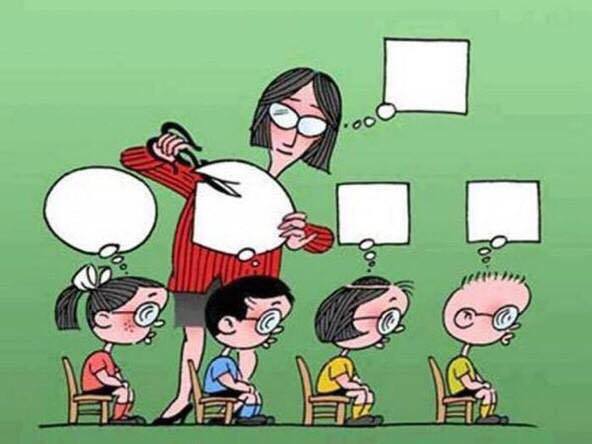 Like Rachel Lynde teaches in Anne of Green Gables, people who have never been parents usually think that there is one good way to parent—but people who have had children know that there is truly a different right way to parent for each child. People truly are different. This lesson is essential, and our modern testing system forgets about it.
Like Rachel Lynde teaches in Anne of Green Gables, people who have never been parents usually think that there is one good way to parent—but people who have had children know that there is truly a different right way to parent for each child. People truly are different. This lesson is essential, and our modern testing system forgets about it.
That’s bad for our nation and our future.
So, yes, I’m opposed to the way many modern classrooms teach to the standardized multiple-choice tests instead of teaching to the student. Each student’s learning should be individualized, personalized, and guided by one or more caring, committed mentors.
Education Job Training
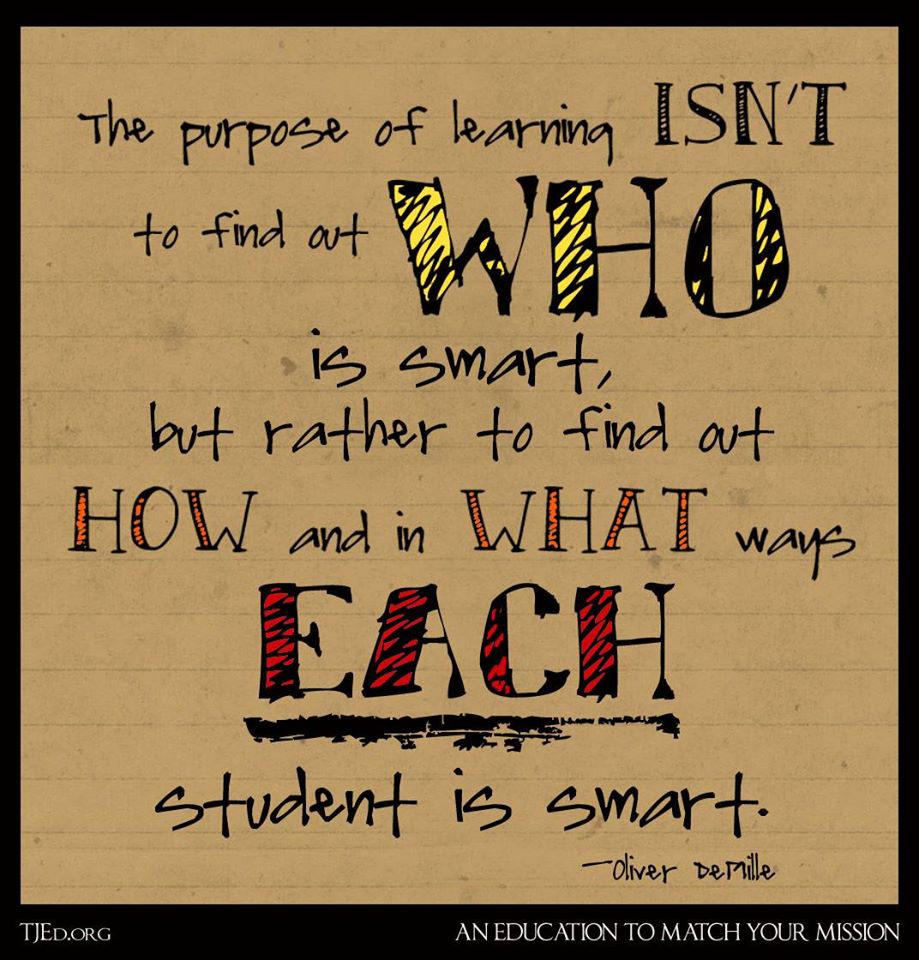 Ideal? Yes! And that’s what our children deserve. Every single one of them. Why would we settle for anything less than the highest ideals in something as important as the education of our children and grandchildren?
Ideal? Yes! And that’s what our children deserve. Every single one of them. Why would we settle for anything less than the highest ideals in something as important as the education of our children and grandchildren?
Shame on anyone who suggests anything less than the ideal!
When I see a nation that calls itself a meritocracy but whose highest court, presidency, and a disproportional number of top corporate leaders only come from the Ivy League—at least for the past two decades—and, to get into the League requires high scores on standardized multiple-choice tests, I shake my head. It’s a serious problem.
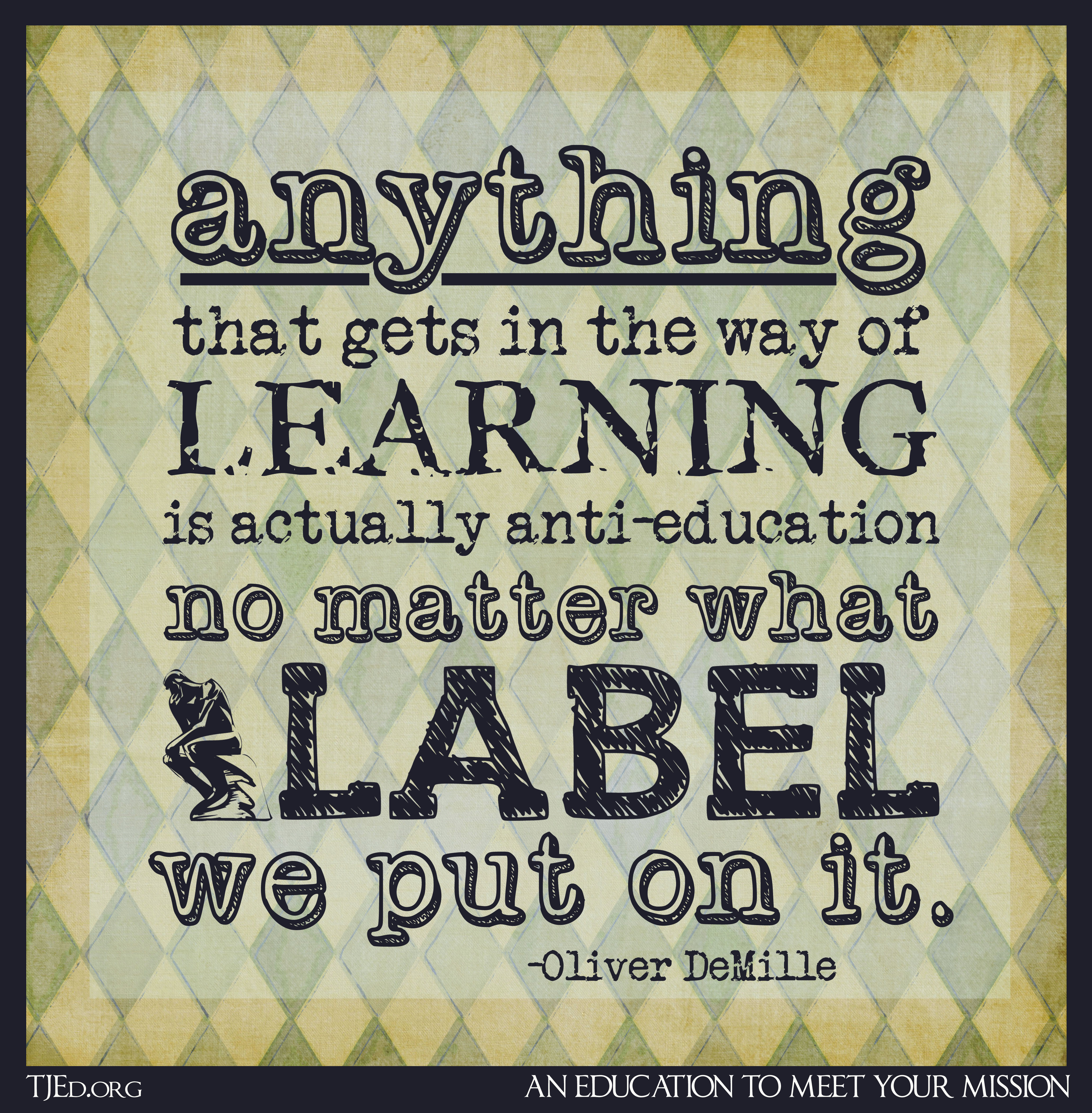 Why? Because such a system is not a meritocracy at all. There many statistics about making more money in life after graduating from a top school, and about making more if you’ve finished college, but there is one that really stands out. Most people don’t know about it, but it’s true. The statistics are clear: on average, the richer the family of the student who takes the SAT, the better the student scores. (Leon Botstein, TIME, March 24, 2015)
Why? Because such a system is not a meritocracy at all. There many statistics about making more money in life after graduating from a top school, and about making more if you’ve finished college, but there is one that really stands out. Most people don’t know about it, but it’s true. The statistics are clear: on average, the richer the family of the student who takes the SAT, the better the student scores. (Leon Botstein, TIME, March 24, 2015)
So, of course these students make more money in their life. In fact, the students of the wealthy who don’t complete top colleges also do financially better, on average, than the students of the poor or middle class—including many of those who do graduate from college. Call it elitist, aristocratic, or whatever you want, but this system isn’t a genuine meritocracy.
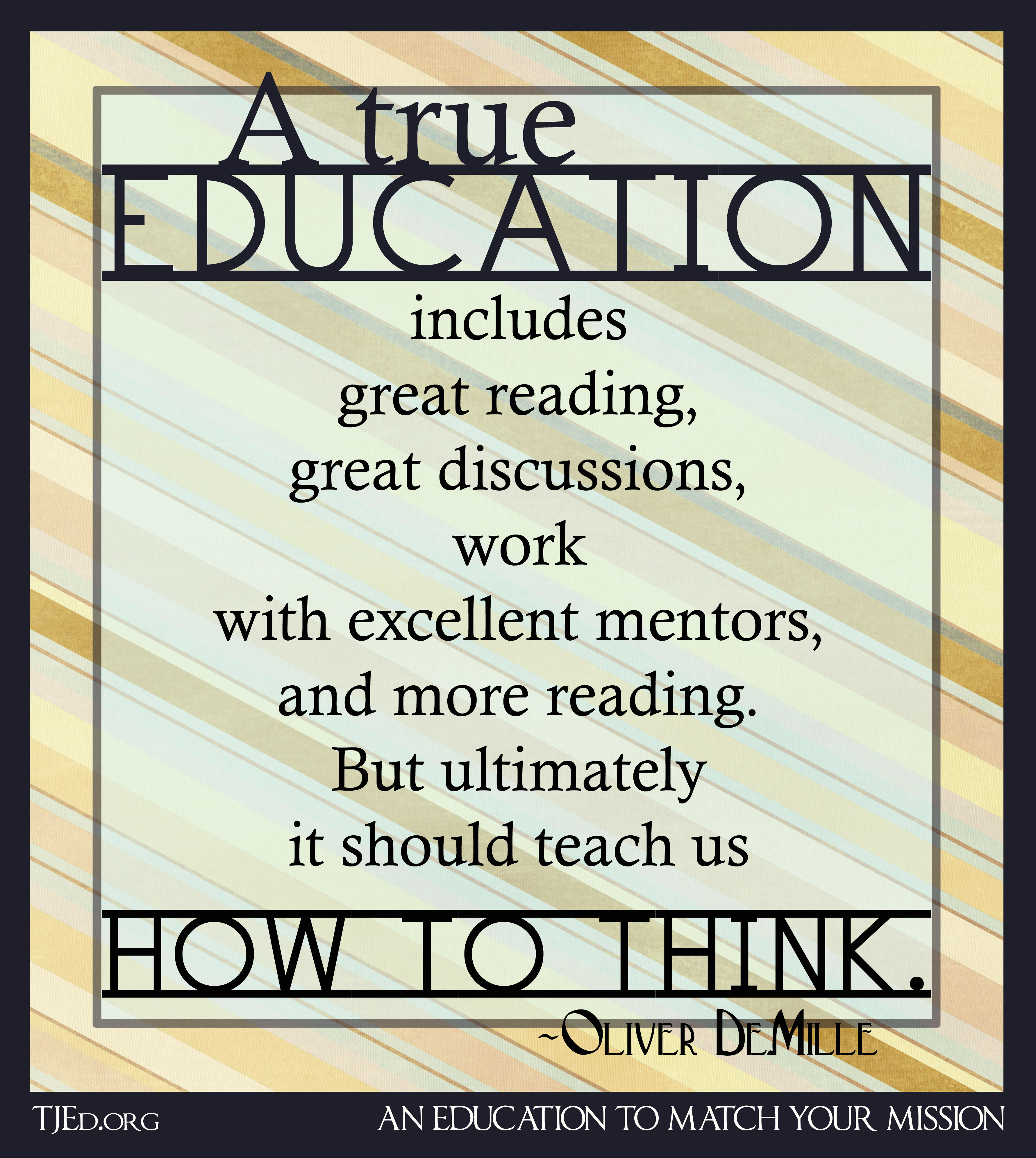 The common response to such a conversation is that universities need such tests to decide which applicants to accept—since college is all about job training nowadays. Well…I’m going to let that pass without argument, even though I very much disagree that universities should be mainly about career training.
The common response to such a conversation is that universities need such tests to decide which applicants to accept—since college is all about job training nowadays. Well…I’m going to let that pass without argument, even though I very much disagree that universities should be mainly about career training.
But if schools are going to focus on career prep, then multiple-choice tests as the constant in the system are deeply flawed. As Leon Botstein wrote in TIME magazine: “The SAT is part hoax, part fraud.” The magazine also called it “a scam”. (Ibid., cover, 17) Why? Because, in Botstein’s words:
“[T]he test can’t predict a kid’s future…. As every adult recognizes, knowing something, or knowing how to do something, in real life is never defined by being able to choose a ‘right’ answer from a set of possible options (some of them are intentionally misleading) put forward by nameless test designers.
“No scientist, engineer, writer, psychologist, artist or physician pursues his or her vocation by getting right answers from a set of prescribed alternatives that trivialize complexity and ambiguity.” (Ibid., emphasis added.)
Quality tests reflect reality, not an imaginary matrix that allows a few experts to determine what they want our whole nation of children to learn (or not learn), and which type of learner they prefer to favor, whom they want to succeed. The key phrase in the whole subject of standardized, national testing such as the ACT and SAT comes from the same TIME article: “nameless test designers.”
A Skewed Approach
This is incredibly important to the future of our society. If the test writers were widely and openly known, by name, with a bio and a video of each of them talking about their core beliefs, political and cultural views, most important aspirations and goals, and perspectives on various important current issues and societal concerns, such tests would almost immediately end.
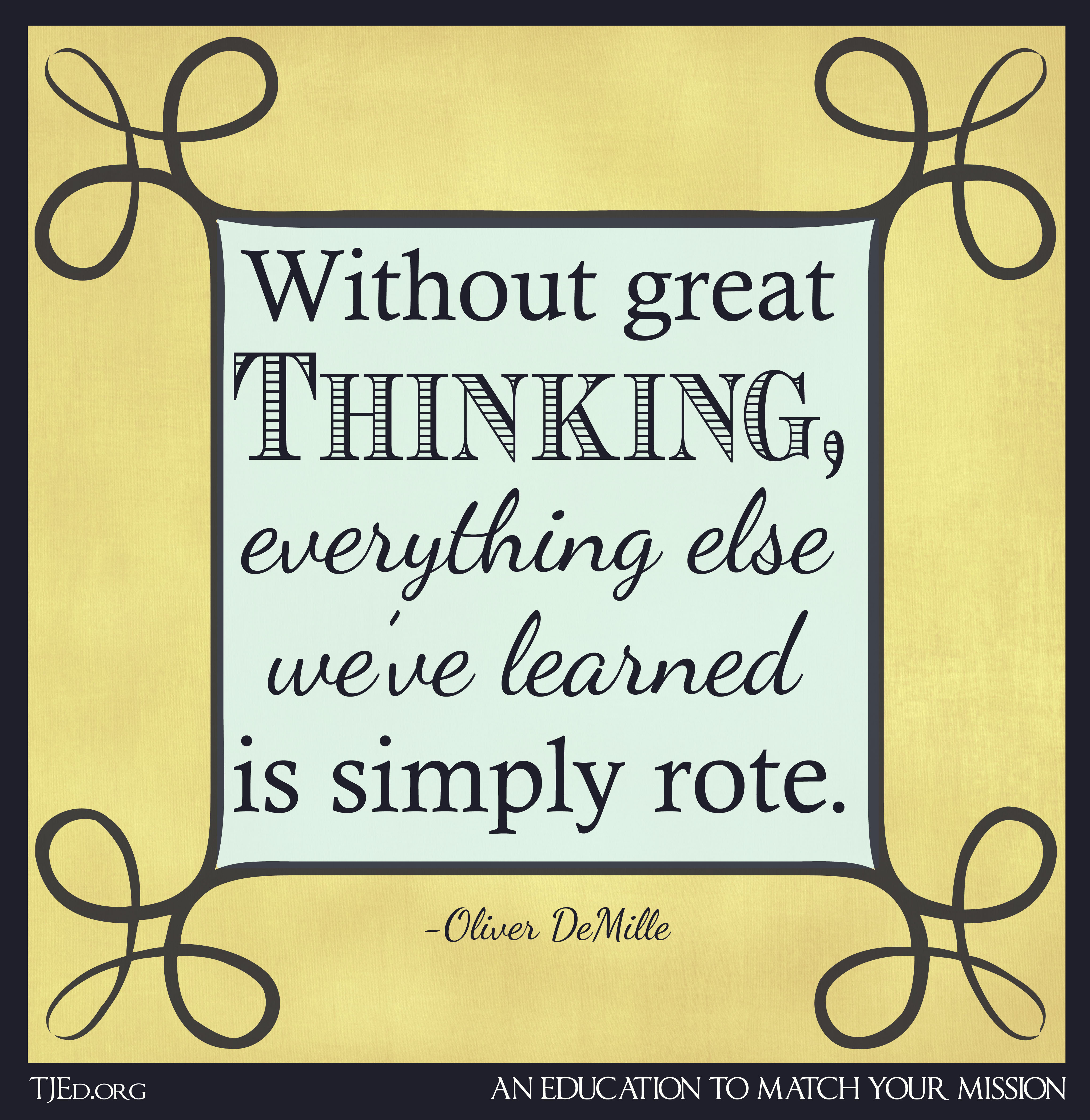
Seriously.
Parents and educators would watch such video clips (easily posted online with today’s technology), and the tests would immediately lose their credibility. I don’t say this because I know the test designers. I don’t. But I am convinced, based on reading and analyzing many of these exams, that they have an agenda.
How could they not? They are the Choosers in our “meritocracy.” They are the Givers. Their exams determine who will win and who will lose the contest—to get into the top institutions of higher learning. They are much more powerful than the Electoral College or the Senate Judicial Committee. In fact, to a large extent, they unofficially but actually choose who will or won’t be eligible for selection by these very groups in the future.
If they openly told us who they are, why they write the tests the way they do, and what they stand for and against, we could evaluate whether we want our kids and grandkids to have the kind of education that is specifically taught in most schools (for the very purpose of excelling on exams written by, planned, and designed by these people). With such transparency, even if they maintained the support of a few, they would lose the support of many others.
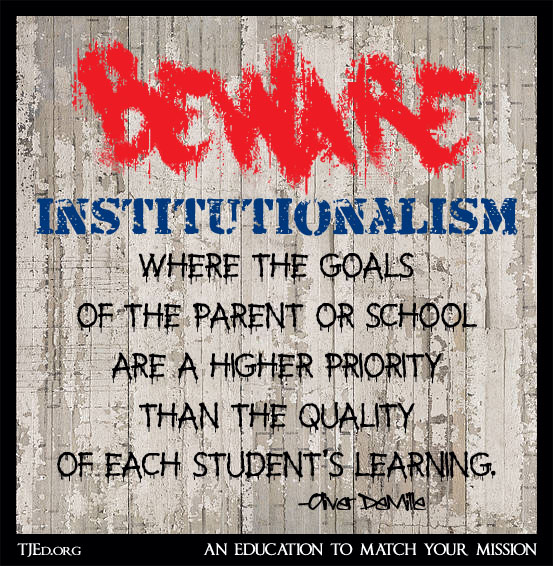 And that would be good for our nation. Other types of testing would arise, and the market would support other competing agendas—by other test designers with competing views and goals—not just the one proscribed by this generally unknown group of “Givers” who select our future national leaders each time they create, approve, and/or reject a test question.
And that would be good for our nation. Other types of testing would arise, and the market would support other competing agendas—by other test designers with competing views and goals—not just the one proscribed by this generally unknown group of “Givers” who select our future national leaders each time they create, approve, and/or reject a test question.
If we’re going to continue to be nation run by the test designers (who parents and teachers unwittingly hold up as the key to each child’s future), we should interview each of them and know that our kids are in good hands. If they aren’t open to such transparency, then why do we give them so much power over our children? And over our nation’s future?
Building a child’s education around meeting the demands and agendas of this group of unseen people—simply because it is “necessary for college,” at least if we teach to the test (and the more people care about the test, the more likely they are to do this)—is a bit strange. It’s akin to living in the 19th Century and using leeches to bleed a sick person because the “experts” assure us it is an excellent practice.
Really? Is that how we want to approach education?
The Way Things Are
I’m all for great education. For rigor and depth and intense study—especially among teens and college-age learners. I think testing is an important part of quality learning.
But the current system has it all wrong.
If your young person gains an education that is defined and driven by the standardized national tests in math, science, social studies, and language arts, then yes, college has very much gotten in the way of his or her education. It has narrowed it, milked out much of the natural passion for learning, and infused it with large doses of rote.
That’s what teaching to the tests usually requires. It has also bent your child’s education in a direction with a specific social/political agenda that many parents don’t support—but don’t know about.
Of course, it’s important to note that for the most part teachers have no control over this. Many teachers manage to do an excellent job of real teaching even though they have this system to overcome. And, as mentioned, few parents realize what is actually going on. They just want their kids to get into a good college.
In truth, I have no problem with young people taking these standardized exams. To get into college, it’s necessary. So take them. Sure.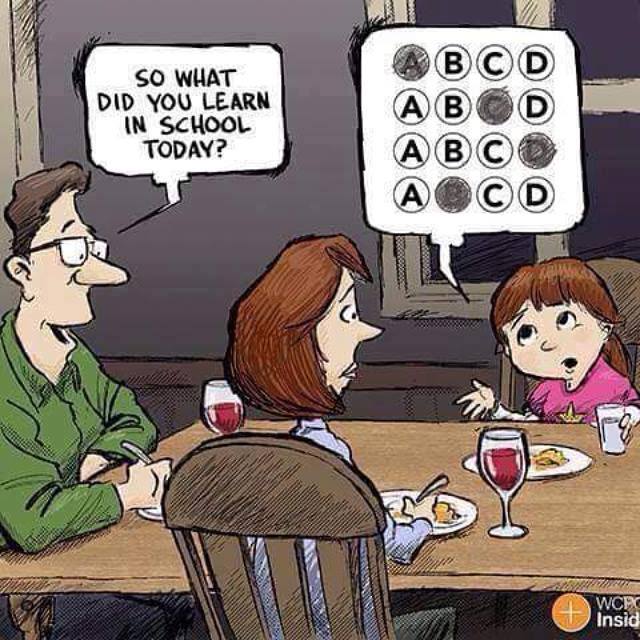
But the problem arises, 1) in throwing out some of your child’s great educational opportunities to focus on teaching to the tests, and 2) in seeing their test scores and thinking you’ve won, or lost.
And, on the national level, the even worse problem is 3) that we’re no longer much of a meritocracy, because we’ve turned over the determination of “merit” almost exclusively to a group of behind-the-scenes “Givers”.
Far too many parents, educators, and others just go along with all three of these problems because “that’s the way things are.”
But they shouldn’t be this way.
And that’s my point. That’s what the idea of America was once all about—to make things the way they should be, to improve things that aren’t right, to fix the broken, and to choose true principles over bad customs. To put what’s right ahead of mere profit or promotion.
The Important Questions
These are by far the most important lessons in anyone’s education.
By far!
Without these lessons, no education is complete.
We can still teach these things, and parents have a lot of power to do so. But these things aren’t being taught on the SAT or ACT, nor in the teach-to-the-test lessons that precede these exams and dominate many schools. Nor, sadly, are they taught in most of the college classrooms that come after the long-coveted Elite University acceptance letter.
They’re going to have to be taught elsewhere.
Which brings us to this one central, vital, question:
How, where, and from whom are your kids going to learn them?
Seriously: Where?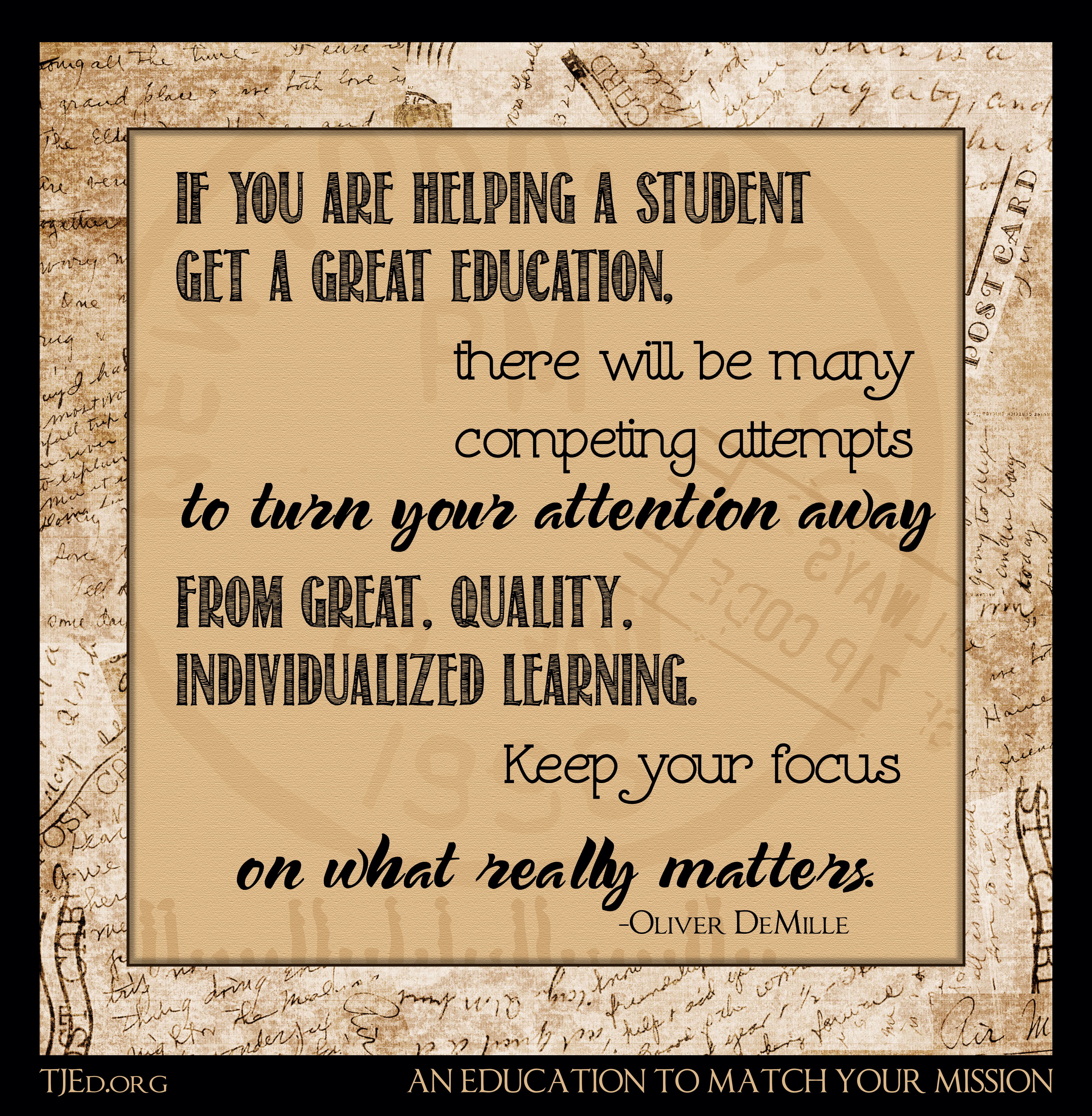
From whom?
Not most schools. Not most universities. Not TV or the movies. Not surfing the Internet.
If parents don’t teach them, they probably won’t get taught.
And that’s going to drastically influence the future of America.
Which brings us to the final test, the real exam, the essential question every parent needs to answer:
What are you going to do about this in your home?
Here’s what we’re doing about it:
Join us!
Category : Aristocracy &Community &Culture &Current Events &Education &Generations &History &Leadership &Liberty &Mission
The Hillary Clinton Emails (A Different View) by Oliver DeMille
March 16th, 2015 // 12:30 pm @ Oliver DeMille
The Curve
 If you follow my articles on a regular basis, you’ve probably noticed that I seldom write about topics that are in the current news cycle. I usually address such issues a week or more after they stop dominating the nightly news. There is an important reason for this.
If you follow my articles on a regular basis, you’ve probably noticed that I seldom write about topics that are in the current news cycle. I usually address such issues a week or more after they stop dominating the nightly news. There is an important reason for this.
The way the television news presents many political topics can be very emotional. This often leaves watchers strongly influenced and emotionally geared up—one way or another.
Instead of jumping into that emotional boiling pot, I prefer to take a more reasoned approach. And waiting a few days or weeks can allow people to absorb the news, think about things, and then take a fresh look at the topic once emotions have calmed a bit. This usually leads to deeper thinking and more wisdom.
The topic of the Hillary Clinton emails is just such an issue. Here’s my take on it, and though I think you’ll find it quite different than the various news reports on the subject, I believe this view is well worth considering. So, here goes…
Reality Politics
Our current “gotcha” method of politics is a stain on our society. Watch the national news on almost any given evening, and a politician or potential candidate is being attacked for his or her latest weakness, mistake, or controversial choices. And in presidential politics, the din is even more constant.
The latest series of commentaries and diatribes against Hillary Clinton’s emails is yet another example of this problem. News programs clamor to break the latest development, talking heads line up to add their two cents of criticism, and potential 2016 Republican candidates jockey to call for the strongest censure.
Is it any wonder that most Americans don’t like politics very much? Or that many of those who do enjoy it too often treat it all like a reality show—a la Bachelor, Survivor, Celebrity Apprentice, the tabloids, or even the latest Kardashian saga? No surprise that independents shake their heads in disgust. Whichever party is the target of the latest news, the critics from the other side seem to pop up in droves.
Just once I’d love to hear a serious presidential contender step forward and take the high road. “I don’t really care about these allegations,” he or she would say. “I’ll leave that to the press and to people who are interested in these things. For me, they’re just a distraction.
A Better America
“The real question is a lot more important: Is Mrs. Clinton the best person for the job of President? Are her values, goals, and vision for this country what we want to lead us into the years ahead? Will her policies get us where we truly want to go? Because I believe in something I think is better for America, and I’d like to focus on that.
“I believe in an American future where…
“I see the United States making the hard choice to…
“If America is going to get back on track, and really live up to our great potential, every citizen needs to…
“Free enterprise is the hope for our future because…
“What really matters most to America’s next decade is the genuine, heartfelt decision to…
“…and that’s the kind of nation I want to pass on to our children and grandchildren. The policies I’ve outlined will get us there. So I’m not going to get sidetracked by these attacks on my opponent. There is too much at stake. No leader is perfect. Everyone in public office can be attacked by those who have nothing better to do.
“But that’s not really what this election or this nation is about. Not at all. There’s something much more important going on. If Mrs. Clinton is the best leader to take America into the future, then you should vote for her. The rest is mere distraction. If you share her vision and goals, then support her. If not, if you share the vision and direction I’ve outlined today, vote for me.
“These other things may be important, or not, but they aren’t as important as the real challenge—not by a long shot. The true question we should be addressing today is what kind of America do we want, how are we going to get there, and who is the best leader to make it happen? That’s the real issue. And ultimately it’s the only issue that really matters.”
Of course, both parties like to point fingers, make accusations, and jump on the bandwagon when they spot a potential weakness. But that’s not what America is about. Or, if it is, then we’re going to continue into decline. Period.
Taking a Stand
I’m convinced most Americans don’t like the negativity. Yes, it seems to influence elections. And that’s sad. Because it shows a certain lack of independent thought, a missing element of leadership on the part of some voters. A nation dedicated to an ongoing game of gleeful whack-a-mole against the latest candidate’s foibles simply isn’t all that serious about its own future.
I’m not suggesting that the media shouldn’t report the news. Journalists have a job to do, and the nation is more informed when they do it accurately. But voters, candidates and party leaders shouldn’t give in to every temptation to jump into the muck, get happily worked up over every personal flaw in their opponents, or go negative whenever a glimmer of opportunity to criticize someone presents itself.
I know, that’s just politics. But that’s the problem. Politics should be better. “It’s not,” the experts say. But let’s not listen to them. Candidates can choose the high road. If that brings about their loss, they should be proud to lose. To paraphrase Thoreau, if being petty, vindictive, and/or negative is what it takes to get elected, anyone who wins an election should be deeply ashamed.
Besides, we’re tired of candidates who really want to win. We want a candidate who really wants to stand for a great America, and to do so regardless of how many votes such a stand garners or repels. Yes, that might seem naïve to those inside the Beltway, but it’s still true. We want a leader. Really.
Finally.
Moreover, voters can stop boosting the ratings of those who feed on the negative. If this is idealistic, it’s only because the ideal is worth supporting.
I, for one, am going to just pass on muckraking politics. I’m no fan of Hillary Clinton’s suggested policies, and I won’t be voting for her, but the candidates who jump on the bandwagon to attack her over every new potential negative—I just don’t respect them. Get a platform, take a stand, make us support you because of what you represent, stop grasping at straws and throwing rocks at Hillary. Or at anyone. Stop going on every television program you can and talking about your opponent’s flaws. It makes you look small. It is small, in fact.
I’ll vote for the candidate who takes a stand—not only for the issues I support, but also for the dignity to be professional, classy, positive, and optimistic. And yes, even idealistic and noble in the way he or she treats opponents and those who disagree.
Past, Present and Future
Leaders like George Washington, Winston Churchill, and Ronald Reagan didn’t win by tearing down the other guy, relying on distasteful personal invective, or playing “gotcha” games. These tactics were too petty for them. They laid out a bold vision for their nation, made a case it for it, and let the voters decide whether or not to support it.
And they stayed on message. (For example, Washington spread his influence and vision mainly through letters, not by campaigning. Churchill was notoriously congenial with opponents, and Reagan was famously optimistic even in addressing controversial topics.) They didn’t let the media, polls, or ratings set their talking points.
I want to vote for a candidate with a powerful vision for America’s future and a new era of greater freedom and prosperity, a realistic and principle-based plan to achieve these things, and a firm stand against wasting time attacking others. And I want to live in a nation of voters who turn off the TV or stop watching programs full of angry jabs about little issues.
It’s time for us to get real. Let’s finally get to the big things: Like what we truly want to be as a nation, what policies will take us there, and which leaders can effectively help it happen. Anything less is a vote for more of the status quo—a nation of bickering, blaming, backbiting, and decline—and that’s a bad decision for all of us.
We can do better.
Call for Greatness
So when candidates or their campaigns join the petty negative attack bandwagon, like a group of mean girls bullying on Facebook, instead of just leading us in a Reagan-esque focus on what we need to truly make America great again, I’m going to scratch them off my list. I don’t want a finger-pointing president, or one whose main goal is to win the White House. We’ve had those—from both parties—and they made things worse, not better.
We need a great president. Just look at our economy, the rising national debt, Russia, China, the Middle East, race disputes in our cities, etc. We face real problems, and many of them are incredibly dangerous. No mediocre president will do.
Whoever you are, we need you to be great. And the surest way to be a great president is to be great, to do great, to simply act great. Starting by focusing on your great plan for America rather than trying to win by exposing the flaws in your opponents. We’re tired of small-minded, petty candidates and “leaders.”
I hope a lot of voters will join me in this watch for a real candidate, one whose bold vision, effective plan, refusal to go negative, and deep understanding of freedom and prosperity will make us all proud to be Americans again. If there’s no such candidate out there, then I really don’t care who wins. Anything less just guarantees further decline.
We need a great president, or bust…
Literally.
And “great” includes positive, optimistic, and unswervingly focused on the big things that really matter.
Category : Aristocracy &Blog &Citizenship &Community &Constitution &Culture &Current Events &Generations &Government &History &Independents &Leadership &Liberty &Politics &Statesmanship
How Freedom Might Win in 2016
February 14th, 2015 // 8:18 pm @ Oliver DeMille
The New Field
 I was wrong. I thought Mitt Romney would run in 2016, but he declined. Where does this leave the election? More importantly, with a large field of potential candidates, is there a path for freedom? Meaning, can someone like Rand Paul who really believes in applying the Constitution in our modern times actually win?
I was wrong. I thought Mitt Romney would run in 2016, but he declined. Where does this leave the election? More importantly, with a large field of potential candidates, is there a path for freedom? Meaning, can someone like Rand Paul who really believes in applying the Constitution in our modern times actually win?
The definite answer is “maybe.” But, more than any election since at least the 1980s, there is a narrow chance of this happening in 2016.
To explore this, we need to clearly understand two important points.
Charisma and Coolidge
First, in every presidential general election the most likeable candidate wins. Always. And in presidential politics “likeable” means both “fun, cool, engaging” and also that a majority of voters believe the candidate really cares about them.
This reality isn’t negotiable. The U.S. electorate always chooses the most likeable candidate for president. So if a Republican candidate isn’t more likeable to the general electorate than Hillary Clinton, he or she won’t win.
Second, there are two major groups of Republicans running for the White House: Establishment Republicans and Serious Freedom-Lovers. It’s been over thirty years since a Serious Freedom-Lover won the presidency. Since 1988, Republican nominees have been a long list of Establishment Rep’s: Bush I, Dole, Bush II, McCain, Romney. And before Ronald Reagan, Republican presidents were all Establishment Rep’s through Ford, Nixon, Eisenhower, and all the way back to Freedom-Lover Calvin Coolidge in the 1920s.
In the 2016 Republican primaries, Establishment votes will naturally split between candidates such as Jeb Bush, Chris Christie, and John Kasich.
Likewise, Freedom-Lover votes will be divided between people like Ted Cruz, Rand Paul, Mike Huckabee, Ben Carson, etc. And a few potential candidates might appeal to both sides, like Scott Walker, Marco Rubio, and Carly Fiorina.
Where the Votes Sit
So what does this all mean for the Republican primaries as they select a nominee to face Hillary Clinton in the general election? While it’s still early, a few things are becoming increasingly clear:
- The Establishment Rep’s will tend to centralize their support behind one of the following: Jeb Bush, or perhaps Chris Christie, John Kasich, Scott Walker, or Marco Rubio. It is most likely Bush’s to lose, or Kasich’s, Rubio’s, or Walker’s to win.
- The Freedom-Lover wing of the GOP will most likely split between various candidates, not concentrating strong support for any one person.
- But the only path to victory by a Serious Freedom-Lover is for voters in this wing of the party to centralize support behind one or at the most two candidates.
Currently, based on the polls, Republicans with a reasonable chance of becoming president are Bush, Rubio, Christie, Paul, and Walker. Let’s compare how each of these do on likeability in the general election:
| Candidate | Youth | Independents | Latinos | Swing State Voters | Overall GeneralElection Likeability |
| Bush | Weak | Medium | Strong | Medium | Medium |
| Christie | Medium | Weak | Weak | Medium | Weak |
| Paul | Strong | Strong | Medium | Strong | Strong |
| Rubio | Strong | Medium | Strong | Strong | Strong |
| Walker | Weak | Medium | Weak | Medium | Medium |
These can, of course, change as the election unfolds. But the problem for Republicans, as it has been since 1992, is that the factors that make a candidate strong in the GOP primaries are very different than those that make them strong in the general election. Compare:
| Candidate | Likeability in Most GOP Caucuses and Primaries | Likeability in General Election |
| Bush | Strong | Medium |
| Christie | Strong | Weak |
| Paul | Medium | Strong |
| Rubio | Medium | Strong |
| Walker | Strong | Medium |
Chains…and Weak Links
In other words, the Republicans have a structural problem. They look for different things in selecting a nominee than the general electorate looks for in choosing the president. Using this system, candidates who are Strong in the GOP primaries are usually Weak or Medium in the generals, while candidates who are Strong in the generals are Medium or Weak in the GOP primaries.
In contrast, the Democrats look for the same things in the primaries that the voters look for in the generals. This is a significant advantage for the Democrats. If Hillary Clinton were added to the chart above, for example, and the heading were changed to “Electability in the Democratic Primaries,” she would rate Strong in both the primaries and the general election. Elizabeth Warren would rate Strong in both as well. Joe Biden would rank Medium in the primaries and Weak in the general—which is why Democrats won’t make him their nominee.
In 2008 Barack Obama rated Strong in both, while McCain (in normal Republican fashion) was Medium in the primaries and Weak in the generals. Romney in 2012 ranked Medium in the primaries and Weak in the general among women, youth, swing state voters, independents and Latinos.
2016 could prove unique because two of the top five potential Republican nominees rank Strong in general election likeability. This is especially significant because they are both strong in the Serious Freedom-Lover camp. But winning the nomination will certainly be an uphill battle for them.
 Oliver DeMille is the New York Times, Wall Street Journal and USA Today bestselling co-author of LeaderShift: A Call for Americans to Finally Stand Up and Lead, the co-founder of the Center for Social Leadership, and a co-creator of TJEd.
Oliver DeMille is the New York Times, Wall Street Journal and USA Today bestselling co-author of LeaderShift: A Call for Americans to Finally Stand Up and Lead, the co-founder of the Center for Social Leadership, and a co-creator of TJEd.
Among many other works, he is the author of A Thomas Jefferson Education: Teaching a Generation of Leaders for the 21st Century, The Coming Aristocracy, and FreedomShift: 3 Choices to Reclaim America’s Destiny.
Oliver is dedicated to promoting freedom through leadership education. He and his wife Rachel are raising their eight children in Cedar City, Utah.
Category : Aristocracy &Blog &Citizenship &Community &Constitution &Culture &Current Events &Featured &Generations &Government &History &Independents &Leadership &Liberty &Politics &Statesmanship
The Bedrock of Freedom: The Ben Carson vs. Rand Paul Debate by Oliver DeMille
February 13th, 2015 // 9:27 am @ Oliver DeMille
Measles, Vaccinations, Common Core,
and the Deeper Issue We’re All Experiencing
 The disconnect right now is tearing our nation apart. Over and over, people engage in the Surface argument, while the Deeper issue is actually a lot more important.
The disconnect right now is tearing our nation apart. Over and over, people engage in the Surface argument, while the Deeper issue is actually a lot more important.
For example, consider the national discussion of whether the government should mandate vaccinations against measles and other similar diseases. The Surface issue is whether vaccinations are safe, or whether in some cases they are hurtful to a child. But the Deeper issue is much more important: Who should make the decision about vaccinations for your children? Government? Or you as the parents?
I recently watched two interviews with U.S. presidential hopefuls that clearly illustrate this point. In the first interview, Ben Carson was asked about measles and vaccinations. He stated that vaccinations should be firmly mandated by government for all children. Period.
Rand Paul took a slightly different approach. He said that vaccinations work and that children should be vaccinated, but that the more important issue is this: Government doesn’t own such decisions about children, parents do. Parents should have the final say.
Both of these men are medical doctors, and both have a history of commitment to the principles of freedom. But in this case, one called for government mandates and the other called for sticking with freedom. Very interesting.
Force and Reason
Ben Carson went on to say that the idea that vaccinations are widely damaging has been debunked, but then he added an interesting point. He said that of course a few children are allergic or otherwise react poorly to vaccinations, but overall the benefits of widespread vaccination are worth it.
That’s reasonable. But, if reason is to be our guide, which of the following is more reasonable:
1-Educating the populace about the scientific facts, then using government force to mandate what parents must choose for their children?
2-Educating the populace about the scientific facts, then letting parents make choices for their children?
This illustrates the current growing division between those who generally trust the government and those who usually distrust it. This disconnect is now a major feature of our nation. It shows up in numerous important issues, including:
1-The government should mandate Common Core across the nation to raise standards for schools and students.
Vs.
2-Parents should have the final say on whether or not Common Core is good for their specific children.
Or:
1-The police are justified in using deadly force as needed, because law enforcement is paramount and force is frequently necessary—and police and government agents are nearly always in the right.
Vs.
2-The community should be very vigilant about any use of force by the police to ensure that it was truly justified, because police forces and governmental agencies sometimes overstep their bounds and aren’t held accountable.
To Trust or Not to Trust
America is split, more each year, by these two major perspectives: “We almost always trust the government to do the right thing,” versus “We don’t usually trust the government to do the right thing.”
Through most of the 20th Century, by the way, an average of 78% of Americans held the first view (trust), while today only 23% of Americans believe the government will do the right thing most of the time. That’s a huge change.
And clearly the disconnect isn’t partisan. It divides both major parties, and it also divides independents. Just look at Common Core, for example. Rand Paul and Ted Cruz are strongly against it, while Jeb Bush is a firm supporter. Bobby Jindal and Mike Huckabee supported it at the state level and then opposed it when it became a federal program. And all of these men are leading Republicans.
Or look at the vaccination issue. Some of the strongest supporters of government mandates are top Democratic politicians, while many of the communities with the lowest rates of vaccination (and highest levels of anti-vaccination activism) are university neighborhoods dominated by progressive faculty and administrators.
On the Right, many Republican voters demand that everyone get vaccinated, while a vocal opposition calls mandatory vaccination a socialistic plot. Ben Carson versus Rand Paul, so to speak, but spread through the population regardless of party.
Now, change the Surface issue, from, say, vaccinations to police use of deadly force in Ferguson, Cleveland, or New York, and the sides quickly shift.
Bad Comparisons
Here’s another example:
1-The government should regulate and then force the education of all children ages 5-16.
Vs.
2-Parents should have the right to make the final educational decisions for their family.
This one clearly hits very close to home, but the divide is still there. Ben Carson said something really interesting while he was making his case for mandatory vaccinations. He compared them to seatbelt laws and also laws against texting while driving. I like Ben Carson, so this surprised me because these two things shouldn’t be treated the same. (He probably would have clarified this if he had time to elaborate.)
The main intent of “don’t text while you drive” laws is to protect other people from bad driving, while the focus of seat belt laws is to protect the driver.
In the case of Common Core, supporters often speak as if their major goals are to improve society, while many parents who dislike Common Core care mostly about the education of their own children. And pro-vaccinators often cite public health statistics at the same time that anti-vaccination parents point to anecdotal examples where specific children were harmed.
Simplicity and Standards
This all makes sense, if we take the time to really consider it. In short, those thinking in terms of the mass population naturally overlook the specific, individual cases (“they’re just anecdotal”) while many a concerned parent logically ignores the statistical tables (“my son isn’t just a number”) and focuses on the potential danger if her child just happens to be one of those who is harmed.
Both views have merit. Both are reasonable. Both make sense. But back to our original question: To whom are we going to give the final say?
The answer depends on what level of society is best equipped to deal with each specific situation. Consider:
- If it’s a question about nuclear attack or foreign invasion, the federal government was designed to deal with it.
- If it’s a question of crime or direct danger to everyone, it’s a state or provincial issue.
- Or, if anything in level B can be handled more effectively at a local level, it should be.
- If it’s about what’s best for an individual’s education, prosperity, or health, let the individual choose. This is the essence of freedom. If it’s about children, let’s trust the parents.
This simple little system is essential to freedom. Without such standards, freedom is quickly lost.
The Level
So, let’s get specific. Do the measles meet the “danger to everyone” level in B or C above? No. So leave such health decisions to the parents. Same with Common Core. Of course, if Ebola is the issue, level B kicks in because it truly is a “direct danger to everyone.” It may even be level A, depending on the circumstances. But Common Core and the measles are nowhere near level A. Not even close.
In fact, this system of doing things at the right level, and only at the right level, is the key to maintaining freedom and applying wisdom on nearly every issue. For example:
-Seat belts? Level D.
-Drunk driving or text-driving? Level B. (It would be level C if people didn’t travel very much, but in our current world conditions, if every local area has a different law, far too many drivers will be confused and the laws will be ineffective at protecting the life and liberty of others.)
-Police using deadly force? Level B.
-Oversight of any use of deadly force? Levels A-D.
-Compulsory school laws? Level D only. Seriously, leave to families those things best handled by families.
-Dedicated study and wise oversight of all laws? Level D.
This isn’t just the Deeper level; it is the bedrock of freedom.
 Oliver DeMille is the New York Times, Wall Street Journal and USA Today bestselling co-author of LeaderShift: A Call for Americans to Finally Stand Up and Lead, the co-founder of the Center for Social Leadership, and a co-creator of TJEd.
Oliver DeMille is the New York Times, Wall Street Journal and USA Today bestselling co-author of LeaderShift: A Call for Americans to Finally Stand Up and Lead, the co-founder of the Center for Social Leadership, and a co-creator of TJEd.
Among many other works, he is the author of A Thomas Jefferson Education: Teaching a Generation of Leaders for the 21st Century, The Coming Aristocracy, and FreedomShift: 3 Choices to Reclaim America’s Destiny.
Oliver is dedicated to promoting freedom through leadership education. He and his wife Rachel are raising their eight children in Cedar City, Utah.
Category : Aristocracy &Blog &Citizenship &Community &Constitution &Culture &Current Events &Economics &Education &Featured &Generations &Government &Leadership &Liberty &Politics &Prosperity &Science &Statesmanship











